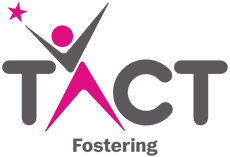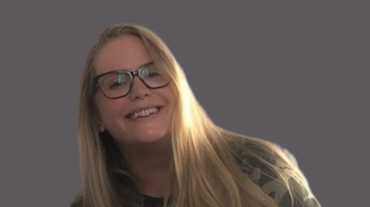Jess has been a Children & Young People Well-being Practitioner (CWP) for TACT since 2017. CWP’s replace the traditional role of Children’s Resource Workers, and provide support for both children in care and the birth children of foster carers.
Having worked with children and young people for most of my career, I was drawn to TACT for their values: putting children and young people before profit, and helping to achieve the best possible outcomes. As is TACT, I am passionate about care-experienced children and young people feeling heard and seen for which their thoughts, ideas, and experiences, have greatly shaped our practice. Starting with TACT as a Children’s Resource Worker, my role developed to well-being practitioner. We saw a need for therapeutic, one-to-one support as part of our support package for our fostering families.
My role as a Children & Young People Well-being Practitioner involves direct, therapeutic one-to-one work with fostered children using the PACE model. I work closely with the child’s foster carer and their Supervising Social Worker, along with Therapeutic Social Workers and Clinical Psychologists. This is to tailor support that meets the individual needs of the child. Using a trauma-informed approach, I support the child to best manage their emotions, behaviours, level of self-esteem and life transitions to promote the best outcomes for them.
“The best bit of my role is getting to be a part of our young people’s journey’s, being alongside them through the highs and lows.”
As for the information that we receive about the specific needs of a young person, it can sometimes be a mixed bag! So I will create a list of the types of direct work needed from me. This can include:
- Coping mechanisms to self-sooth/regulate when feeling angry, anxious or stressed
- Support for children who are new to care and need support adjusting
- Support for children who are socially isolated, by attending events with them in their local community. This could include sports, drama groups etc.
- Emotional support for young people who are struggling with school, bullying, social media and body image
- Support for young people who are transitioning to new TACT carers, or from school to college
- Support with a young person’s confidence, self-esteem and self-image
I work therapeutically, on a one-to-one basis, with children and young people who have been referred to me by a social worker. This is under the guidance, direction and supervision of Clinical Psychologists. I undertake this work in schools, after school, in the community and at home. It is child-led and trauma-informed, so what best suits the young person. Depending on the needs of the child, this could involve weekly or fortnightly meetings.
We have a main summer event for all children and foster carers to attend. In the past this has been a theme park, or a day out in the park where we bring games and a picnic. Historically, the older children have requested that foster carers do not attend, and so we decided to split the summer events for older and younger children. This has included bowling, go karting and trips to the cinema.
We are developing our ‘buddying’ groups which will always be evolving due to children joining and leaving TACT. However, we want a strong emphasis on the buddying being a practical part of the welcome pack for new young people too. This ties in with the ‘culture club’ where young people have the opportunity to explore and learn the varying diversities and cultures of their care-experienced friends, especially our unaccompanied asylum-seeking young people.
“My proudest moments as a well-being practitioner, is when young people become proud of themselves and see their own self-worth, despite the challenges they have encountered.”
National residential offers include activities such as cookery and music & media. These residentials are also available to the birth children of our foster carers.
The best bit of my role as a Children & Young People Well-being Practitioner is getting to be a part of our young people’s journey’s, being alongside them through the highs and lows. Helping them to trust that not all people are scary so that they can build resilience and develop confidence to do and be what they wish. My proudest moments as a well-being practitioner, is when young people become proud of themselves and see their own self-worth, despite the challenges they have encountered.


